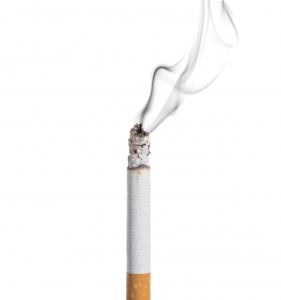Key Takeaways
- Smokers can receive dental implants, but cigarette smoking dramatically increases implant failure rates (up to 20% vs. 2-5% for non-smokers).
- Quitting smoking before and after dental implant surgery is the crucial step for the optimal healing process and success rates.
- Nicotine restricts blood flow, delays the natural healing process, weakens the jawbone, and increases bacterial infection.
- Peri-implantitis risk is significantly higher in smokers, leading to bone loss and early implant failure.
- Cease smoking or reduce tobacco use to protect your healthy smile when considering implant treatment.
Can You Get Dental Implants if You Smoke? Answers from Your Local Hilliard Dentist
Yes, smokers can get dental implants at our Hilliard dental office—but with important considerations for your oral health. Recent 2024-2025 studies show that smoking remains one of the leading risk factors for dental implant failure because tobacco use affects gum disease prevention, bone density, and your body’s natural healing process after implant placement surgery.
If you’re a smoker dealing with missing teeth, you don’t have to abandon the idea of permanent tooth replacement. Our experienced implant dentist in Hilliard can evaluate your oral health and help you understand the risks and strategies to dramatically improve your success rate.
Ready to restore your smile? Call our Hilliard dental office today at (614) 771-6060 to schedule a consultation. We proudly serve patients searching for a dentist near them in Columbus, Dublin, Upper Arlington, Grove City, Westerville, and surrounding Central Ohio communities.

How Smoking Affects Dental Implant Treatment: The Science Behind Success
Dental implants depend on a critical process called osseointegration, where the titanium implant post fuses with your jawbone. Smoking—whether cigarettes, cigars, or vaping—introduces harmful toxins and nicotine that significantly interfere with this healing process.
Here’s how tobacco use impacts your dental implant procedure:
- Restricted Blood Flow: Nicotine constricts blood vessels, dramatically reducing oxygen and nutrient delivery to gums and bone tissue. This restriction can double your recovery period after implant placement.
- Increased Risk of Infection: Smoking weakens your immune system, making bacterial infections and peri-implantitis far more likely around your replacement tooth.
- Accelerated Bone Loss and Periodontal Disease: Smokers face a higher risk of gum disease, which reduces bone density and compromises implant stability in the jawbone.
- Delayed Healing Process: Tobacco use can extend recovery time significantly, leaving many patients with increased discomfort and higher chances of implant failure.
Bottom line: Smoking doesn’t automatically disqualify you as a candidate for dental implants, but it does substantially increase complications. Even a temporary cessation can make a dramatic difference in your treatment outcome.
Smoking Before and After Dental Implant Surgery: Timeline for Success
Before Your Implant Procedure
Cigarette smoking before your dental implant placement raises several significant risks:
- Increases plaque buildup and accelerates gum disease progression, weakening the foundation for successful implants
- Reduces jawbone density, making it more challenging for your oral surgeon to place implants securely
- Elevates infection risk during and immediately after surgery
- Compromises overall health factors that affect healing
Professional Recommendation: Most implant dentists, like Dr. Nathan Desai, highly recommend patients cease smoking at least four to six weeks before surgery to improve blood flow and optimize their mouths for healing.
After Dental Implant Surgery
The first eight to 12 weeks following implant placement are absolutely critical for long-term success. Smoking during this crucial period can:
- Dislodge protective blood clots, leading to painful dry socket complications
- Interfere with osseointegration, preventing your titanium implant from properly fusing with the jawbone
- Significantly delays the healing process and increases the risk of early implant failure
- Compromise your investment in advanced dental technology
For optimal results, we highly recommend patients avoid all tobacco products for at least eight to 12 weeks post-surgery, with many patients finding permanent cessation provides the best long-term oral health outcomes.
Life-Changing Benefits of Quitting Smoking for Dental Implants
Quitting smoking—whether short-term or permanent—dramatically improves both your implant success rate and overall health:
- Higher Success Rates: Non-smokers achieve up to 98% success rates for dental implants, while smokers’ rates typically range from 80 to 85%.
- Accelerated Healing Process: Improved blood circulation speeds up the recovery period, getting you back to your normal routine faster.
- Enhanced Bone and Gum Health: Quitting reduces your risk of periodontal disease and bone loss—two leading causes of implant failure.
- Reduced Infection Risk: Dramatically lower risk of peri-implantitis and bacterial infections around your replacement tooth.
- Comprehensive Health Benefits: Protects your mouth, heart, lungs, and contributes to your beautiful smile and overall wellness.
Proven Strategies for Quitting Smoking Before Dental Implant Treatment
If you’re preparing for dental implant treatment in Hilliard, here are evidence-based strategies from our implant dentistry team:
- Join a professional cessation program or seek support from healthcare providers
- Set realistic short-term goals leading up to your implant surgery appointment
- Replace smoking triggers with healthier habits like chewing sugar-free gum or light exercise
- Discuss safe alternatives with your dentist—some nicotine replacement therapies may still restrict blood flow and affect healing
- Focus on your investment—remember that dental implants are a significant investment in your health and beautiful smile

Frequently Asked Questions
Can I smoke after getting dental implants in Hilliard?
It’s strongly discouraged by all dental professionals. Smoking in the first 2-3 months after implant surgery can disrupt the critical healing process, increase infection risk, and cause early implant failure. Many patients find this recovery period the perfect opportunity to quit permanently.
What happens if my dental implant fails because of smoking?
If implant failure occurs due to tobacco use, the implant may need removal by your oral surgeon. Once the site completely heals, you may be eligible for another implant procedure—but quitting smoking first is crucial to improve your success rate and protect your investment.
Are there alternatives to dental implants for smokers in Hilliard?
Yes, several tooth replacement options exist. If quitting smoking isn’t immediately possible, alternatives include dental bridges, complete dentures, or implant-supported dentures. Our restorative dentistry team can help determine the best solution for your specific situation.
Can vaping affect dental implant success rates?
Absolutely. While vaping doesn’t involve traditional tobacco, nicotine still restricts blood flow and delays the healing process, posing similar risks to cigarette smoking. The negative effects on your oral health remain significant.
Schedule Your Dental Implant Consultation With Us!
Don’t let smoking hold you back from achieving your beautiful smile. Even if you’re currently a smoker, our experienced team can help you develop a treatment plan that maximizes your success rate and gets you back to optimal oral health.
Ready to take the crucial step toward your new smile? Call our Hilliard dental office today at (614) 771-6060 to schedule your comprehensive consultation. Your healthy smile awaits—let’s make it happen together!





